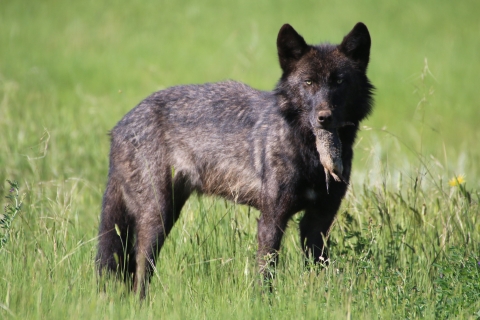DENVER
,
November 7, 2023
(press release)
–
The final 10(j) rule and final Record of Decision are available today in the Reading Room and on the project webpage. The 10(j) rule becomes effective on December 8, 2023, 30 days after publication in the Federal Register. The Colorado Parks and Wildlife Commission intends to reintroduce the gray wolf in a portion of the species' historical range in Colorado by December 31, 2023. Colorado Parks and Wildlife requested the designation of an experimental population under section 10(j) of the ESA to provide the state with increased flexibility to manage wolves once reintroduced in Colorado. CPW completed and published a Final Wolf Restoration and Management Plan for reintroducing the species. The state management plan provides for differing management tools based on achieving recovery targets. As the state achieves these recovery targets, tools available to the public under state laws and regulations may be more restrictive than what is allowable under the Service’s federal rule. Today's announcement follows extensive coordination and outreach among many partners in Colorado at the local, state, federal, and Tribal levels. On September 15, 2023, the Service previously announced the draft ROD and Final Environmental Impact Statement. The final ROD concludes that the Service will implement proposed “alternative 1” from the scoping and draft process to finalize a 10(j) experimental population designation. This final Service experimental population rule designates management flexibility to the state for reintroduced gray wolves in Colorado. This management flexibility can help to address potential conflicts between wolves and humans, and wolves and domestic animals while contributing to the conservation of the species. Learn more about 10(j) rules and experimental populations online. Additional information, documents, and frequently asked questions about the experimental population designation can be found at https://www.fws.gov/coloradowolf. More information from CPW regarding their reintroduction of gray wolves can be found at https://cpw.state.co.us/learn/Pages/CON-Wolf-Management.aspx.
* All content is copyrighted by Industry Intelligence, or the original respective author or source. You may not recirculate, redistrubte or publish the analysis and presentation included in the service without Industry Intelligence's prior written consent. Please review our terms of use.





